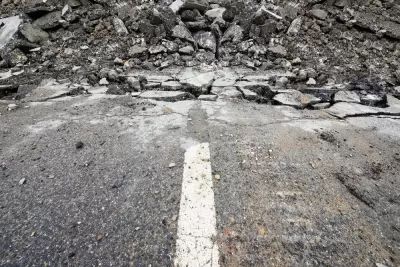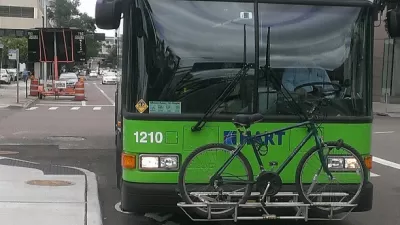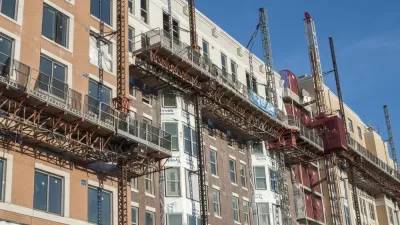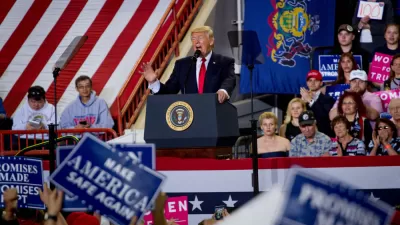Trump plans to authorize $137 billion in tax credits to private construction companies to build projects with tolls and other future cash streams to them to spur building and the economy.

In a campaign that has generated a great deal of talk about the importance of rebuilding American infrastructure, some have criticized GOP candidate, Donald Trump, for not providing specifics. On October 27 with less than two weeks left in the campaign, the Trump team released a document entitled "Trump Versus Clinton on Infrastructure" that fills in some of those details.
In his article for the Washington Post, Jim Tankersley, points out that this type of plan would not be in keeping with traditional conservative views. The document makes a Keynesian argument about the economic benefits of pumping government money into the economy, suggesting that the building boom that would follow would be a boon to the U.S. economy. Meanwhile, some on the left have expressed concerns about privatizing a trillion dollars-worth of American roads and bridges.
For their part, Wilbur Ross and Peter Navarro (the Trump advisors who authored the plan) suggest that it provides a best- of-both-worlds approach. Tankersley reports that they, "Calculate the added tax revenue would be enough to pay for the total cost of the tax credits."
However, Tankersley found that economists dispute this assessment, writing, "Alan Cole, an economist at the Independent Tax Foundation, said the proposal likely overrates the amount of tax revenue that would be generated by the private spending, partly because it appears to assume that every worker on the infrastructure projects was not working — or paying income taxes — previously."
FULL STORY: Donald Trump believes the United States can get $1 trillion in new roads — for free

Study: Maui’s Plan to Convert Vacation Rentals to Long-Term Housing Could Cause Nearly $1 Billion Economic Loss
The plan would reduce visitor accommodation by 25% resulting in 1,900 jobs lost.

Alabama: Trump Terminates Settlements for Black Communities Harmed By Raw Sewage
Trump deemed the landmark civil rights agreement “illegal DEI and environmental justice policy.”

Why Should We Subsidize Public Transportation?
Many public transit agencies face financial stress due to rising costs, declining fare revenue, and declining subsidies. Transit advocates must provide a strong business case for increasing public transit funding.

Paris Bike Boom Leads to Steep Drop in Air Pollution
The French city’s air quality has improved dramatically in the past 20 years, coinciding with a growth in cycling.

Why Housing Costs More to Build in California Than in Texas
Hard costs like labor and materials combined with ‘soft’ costs such as permitting make building in the San Francisco Bay Area almost three times as costly as in Texas cities.

San Diego County Sees a Rise in Urban Coyotes
San Diego County experiences a rise in urban coyotes, as sightings become prevalent throughout its urban neighbourhoods and surrounding areas.
Urban Design for Planners 1: Software Tools
This six-course series explores essential urban design concepts using open source software and equips planners with the tools they need to participate fully in the urban design process.
Planning for Universal Design
Learn the tools for implementing Universal Design in planning regulations.
Smith Gee Studio
Alamo Area Metropolitan Planning Organization
City of Santa Clarita
Institute for Housing and Urban Development Studies (IHS)
City of Grandview
Harvard GSD Executive Education
Toledo-Lucas County Plan Commissions
Salt Lake City
NYU Wagner Graduate School of Public Service





























